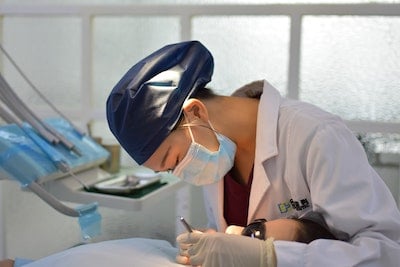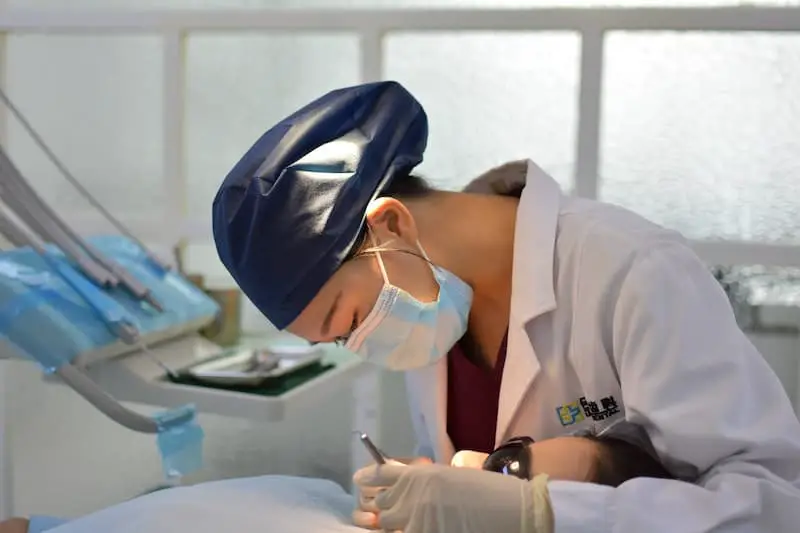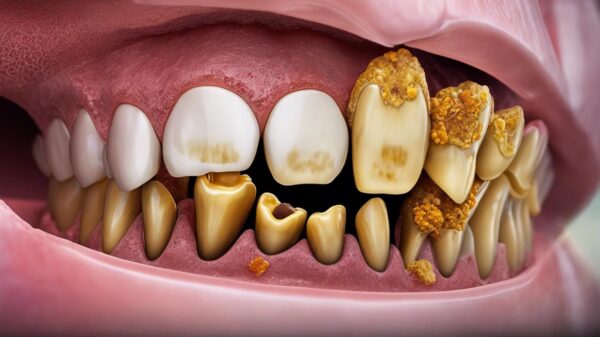When you hear of someone having their wisdom teeth removed, you often hear horror stories of arduous recovery times and intense pain. However, much of this is blown out of proportion and simply not the case! Having an understanding of what your recovery timeline will look like following your procedure will not only help you to better care for your mouth but also approach your wisdom tooth removal with confidence.
What does an average wisdom teeth removal recovery timeline look like? The day of your wisdom teeth removal is most certainly the most challenging. Following your surgery, you will need to spend the rest of the day relaxing. After 2-3 days, you will be able to resume normal activities. The wound left behind after your procedure should be completely healed in 6-8 weeks.
In order to ensure that your wisdom teeth removal recovery goes smoothly, it is important to carefully follow proper care procedures and take steps to accelerate your recovery. In this post, we will discuss what you can expect in the days and weeks following your procedure. We will also share some helpful tips on how to prevent infection and ensure a quick recovery.
Complete Guide to Recovering From Wisdom Teeth Removal
While wisdom teeth removal is certainly not a procedure that anyone enjoys, it is also not as scary as some may lead you to believe. In fact, the recovery process is relatively straight-forward.
Keep in mind that each individual is different and will respond differently to their wisdom teeth removal. Your dentist will be able to provide you with the most accurate and detailed information regarding your personal recovery expectations and timeline.
Recovery Timeline for Wisdom Teeth Removal
 How long does it take to recover from your wisdom teeth removal? How many days do you need to take off work? These are important things to consider as you schedule your upcoming wisdom teeth removal. Allowing yourself appropriate time to relax and recover without the pressures of jumping back into your daily routine is one of the best ways to expedite your recovery.
How long does it take to recover from your wisdom teeth removal? How many days do you need to take off work? These are important things to consider as you schedule your upcoming wisdom teeth removal. Allowing yourself appropriate time to relax and recover without the pressures of jumping back into your daily routine is one of the best ways to expedite your recovery.
For this reason, many working adults choose to schedule their wisdom tooth removal for Friday morning, allowing them several days to recover over the weekend. If you are not able to plan your procedure to align with the weekend, it is recommended that you request at least three days off work or arrange for a flexible, workable schedule.
Each dental practice uniquely performs their wisdom tooth removals. Regardless of if you receive general anesthesia or local anesthesia, your procedure is considered outpatient surgery.
On the day of your procedure, you will arrive at the dentist’s office or medical center to prepare for surgery. Be sure to ask your dentist if there are any restrictions on food, drink, or medication intake on the day of your procedure. Doing so will eliminate any confusion or the possibility of having to reschedule your wisdom teeth removal.
Your dental team will administer anesthesia and work to quickly and carefully remove your wisdom teeth. Most patients have all four wisdom teeth removed at once. However, some patients may only need one or two wisdom teeth removed. You will have no memory of the procedure and will wake up in the recovery room following your surgery.
What to Expect On the Day of Your Wisdom Tooth Removal
After you have woken up from anesthesia and the dental team has had adequate time to observe your condition following the procedure, you will be able to head back home. It is important to note that you will not be able to drive following your wisdom teeth removal.
You will need to arrange for transportation ahead of time. In fact, some dental practices will not proceed with the wisdom teeth removal until your designated driver arrives. As soon as your anesthesia begins to wear off, you will begin to regain feeling in your mouth. You will also begin to notice swelling and possibly the taste of blood. Rest assured that these are all normal signs following your procedure.
Leaving the dentist, you will likely have bandages surrounding the wound and possibly some form of compression around your face. Your dentist may also provide you with an ice pack to help decrease swelling and pain. Following your procedure, you will be provided with instructions on how and when to take pain medication following wisdom teeth removal. Some patients opt for over-the-counter pain medication while others choose prescription painkillers.
Whether you choose over-the-counter or prescription medication, be sure that you have some form of pain medication on hand before arriving home from your procedure. In order to prevent excessive pain and discomfort, carefully follow your dentist’s instructions regarding pain medication for at least 24 hours following your surgery. After the first day or two, you can use pain medication as needed.
Your dentist will provide you with detailed instructions on food and drink limitations for the day of your procedure.
What to Expect During the Week After Your Wisdom Tooth Removal
While you may experience some pain and swelling for two or three days following your surgery, most patients are ready to return to their normal schedules within four days. As your swelling decreases and the area becomes less tender, you will be able to eat and drink with greater ease.
One of the most important things you can do to expedite your recovery following wisdom teeth removal is to be careful about what you eat and drink. Soft, easy-to-eat foods are the best option for the week following your surgery. Many individuals find smoothies to be incredibly satisfying. The cold temperature also provides relief to the wound. You can find a comprehensive list of foods you should (and shouldn’t) eat after wisdom teeth removal here.
It is also important to carefully follow post-procedure care instructions provided by your dentist. This is the best way to prevent infection or damage to the exposed nerves. Proper care includes rinsing your mouth with salt water several times a day to clean the wound. You will also resume twice-daily brushing and flossing. If you are used to brushing your wisdom teeth, you will need to proceed with caution as you establish a new routine.
Depending on the circumstances surrounding your wisdom teeth removal, your dentist may wish to see you several days after the procedure to check on the wound site. If not, you will need to carefully watch for signs of wisdom teeth infection and notify your doctor if you have any concerns.
Long-Term Recovery Expectations for Wisdom Tooth Removal
Although you will be able to resume daily activities within four days of your wisdom teeth removal, the wound site will not fully heal for 6-8 weeks. You must continue proper oral hygiene and avoid activities that could cause injury to the area.
Because infection to the wound site can occur weeks after surgery, it is important to watch for warning signs until the wound is fully healed. Once your mouth has fully healed from your wisdom teeth removal, you will be able to once again enjoy food, drink, and activity as normal.
Finding An Experienced Wisdom Tooth Removal Dentist Near You
In order to ensure a successful wisdom tooth removal, it is important to find a dentist office near you that specializes in this area. This minimizes the chance of infection or nerve damage and ensures that your procedure goes as smoothly as possible.
If your dentist has recommended wisdom teeth removal, it is easy to put it off. However, it is important to realize that hesitating to schedule your appointment could result in further discomfort, infection, or decay. While the recovery process is certainly not pleasant, it is not as horrifying as many may lead you to believe. With proper oral hygiene, rest, and relaxation, you will be back to your daily routine in no time!
Thanks for reading Modern Dental Hygiene! Find more tips for keeping your teeth clean here.












